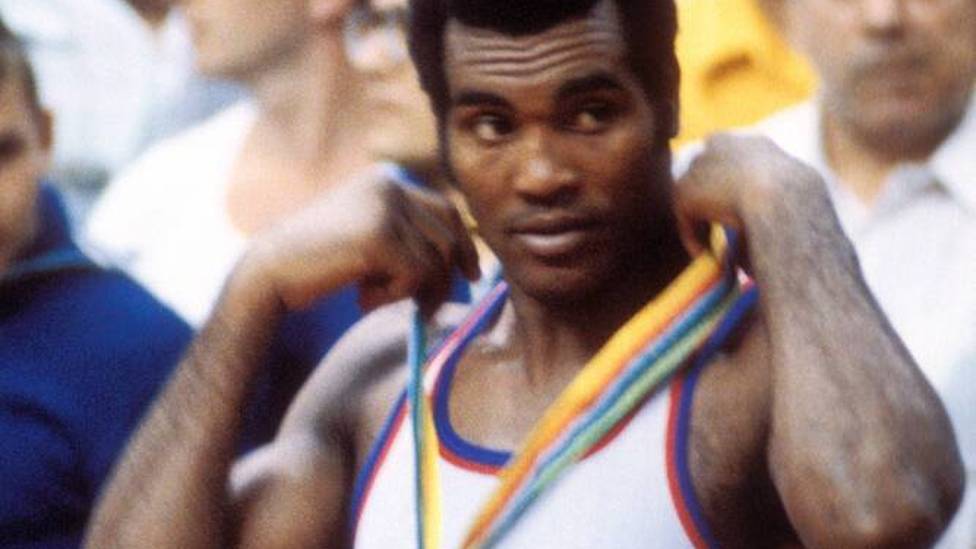Teofilo Stevenson was a record-breaking champion with the potential to become as great as Muhammad Ali – but he sacrificed his professional career for communism.
There was mourning in the streets of Havana, the international boxing scene was grieved.
On 11 January 2012 – 10 years ago today – Teofilo Stevenson, the great hero of the proud boxing nation of Cuba, died of a heart attack at the age of 60.
The man who was the first heavyweight to become Olympic champion three times in a row was already a legend during his lifetime. And could have become an even greater one – had he not insisted on principles that seem unthinkable from today’s perspective.
Teofilo Stevenson refused duels with Muhammad Ali and Co
“The best heavyweight boxer is Teofilo Stevenson. None of today’s champs would stand a chance against him,” former world champion Goerge Foreman once claimed in Stevenson’s heyday.
Muhammad Ali, ten years his senior, and Joe Frazier wanted to destroy Stevenson’s special magic and lure him into the professional ranks with million-dollar fees, but Stevenson remained stubborn.
As a loyal soldier, the amateur boxer followed the dictates of his communist president Fidel Castro and renounced money and glamour.
“What’s a million dollars against eight million Cubans who love me,” Stevenson said, speaking from the heart of his head of state.
Star hour at 1972 Munich Olympics
Under Cuban socialism, all people had to be equal, and athletes were not allowed to be an exception. Instead of following the sweet temptations of capitalist foreign countries, Cuba’s fighters had to promote their country at the Olympics. Stevenson took the national task to heart with conviction.
Right from his first Olympic appearance in Munich in 1972, his star rose: The boy from a humble background swept his first opponent out of the ring after 30 seconds. In the semi-finals he knocked out the German champion Peter Hussing. When his opponent did not compete in the final, Teofilo Francisco Stevenson Lawrence was Olympic champion – at the age of 20.
“I am totally shocked. He was such a fine person and actually couldn’t hurt a fly. He just boxed, that was his goal,” Hussing said after his defeat in Munich. “I’ve never been caught so hard before,” the “Bear of Brachbach” had admitted.
Boycott prevented fourth Olympic victory
1976 in Montreal and 1980 in Moscow Stevenson also won gold – without much opposition.
The Cuban dominator became the first boxer in history after Hungary’s Laszlo Papp (1948 to 1956) to win gold at three consecutive Olympic Games.
In 1984, he set his sights on a fourth triumph, but once again his head of state threw a spanner in the works: Cuba boycotted the Games in Los Angeles after the Western states had been absent from Moscow four years earlier because of Russia’s intervention in Afghanistan.
Perhaps it was better for the Stevenson myth: at the 1982 World Amateur Championships in Munich, he lost his shine, surprisingly eliminated in the preliminary round against Italy’s Francesco Damiani.
Discovered by a German
The tall and always upright boxing Stevenson – also a three-time world champion in the amateur division – was considered a stylist in his heyday who, like Ali, could box tremendously fast for his weight class.
Born in Puerto Padre on 19 March 1952, Stevenson was once discovered by a German: GDR boxing coach Kurt Rosentritt provided development aid on the Caribbean island from 1964 to 1968, and the father of Berlin sports journalist and Sebastian Deisler biographer Michael Rosentritt placed his discovery in the care of Cuban champion trainer Alcides Sagarra, who moulded Stevenson into a top man.
In Cuba, Stevenson was a national hero until the end. In 1976, he was elected to the National Assembly, followed by positions as director of the Cuban sports organisation and vice president of the national boxing federation.
He also belonged to the close circle around Fidel Castro – who outlived his model boxer by four years.

